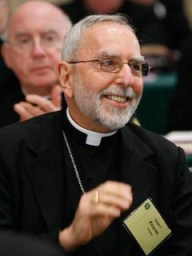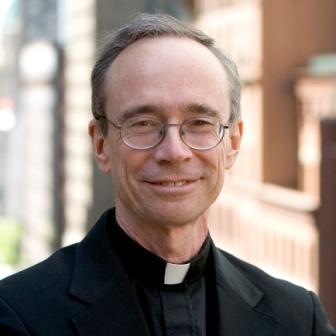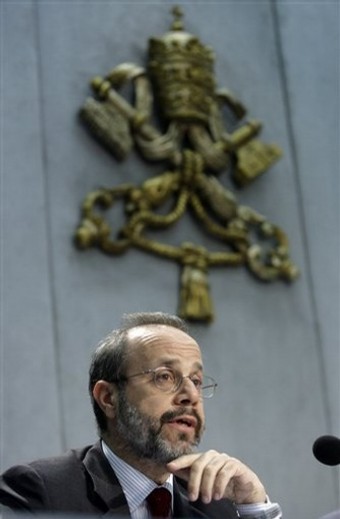 Bishop Gerald Kicanas of Tucson, a Chicago native and in line to be the next president of the U.S. bishops conference, foresees some informal discussions about the Notre Dame-Barack Obama invite flap, but nothing substantive or punitive. I suspect some side discussions will be intense, but here’s what he is telling NCR’s John Allen, who has this Q&A:
Bishop Gerald Kicanas of Tucson, a Chicago native and in line to be the next president of the U.S. bishops conference, foresees some informal discussions about the Notre Dame-Barack Obama invite flap, but nothing substantive or punitive. I suspect some side discussions will be intense, but here’s what he is telling NCR’s John Allen, who has this Q&A:
Allen: Many bishops were publicly critical of the decision to invite Obama. Do you think that represents a consensus, or was it that bishops with a different view chose not to speak out?
Kicanas: My sense is that many bishops wanted to do what has already been done, which is that the bishop of the area, who is Bishop [John] D’Arcy, would have the responsibility to teach. He has done that. On occasion, the president of the conference speaks. I think that many bishops who didn’t say anything believe that’s the best way for the church to respond, for the local bishop to handle the situation. I think Bishop D’Arcy certainly made his position clear. He expressed his disappointment that he wasn’t consulted about it, and he chose not to go.
Allen: But do you have the impression that there are bishops who were at least sympathetic to the argument that Notre Dame made in favor of the invitation?
Kicanas: I think the tension is that the bishops agreed on a statement about honoring politicians who hold positions contrary to the teaching of the church.
Allen: You’re referring to the 2004 statement?
Kicanas: Yes. The honoring question, I think, was the most complex, and certainly one that many bishops spoke up about … that it was not fitting in light of that statement to be honoring President Obama.
Allen: Do you think it would have been a different case if it weren’t for the honorary degree … that is, if it were simply him coming to speak without getting an honorary doctorate?
Kicanas: Bishops probably differ there. Some would feel that he ought not to be given a platform at all, because his positions have been so supportive of abortion legislation. Other bishops would not have been so concerned had he simply been invited to speak. Certainly, what concerned many bishops is that he was honored.
I think it’s something that’s going to take further discussion, further interaction between bishops and presidents of universities to talk through this, because the pressures on presidents are different than the pressures on bishops. Therefore, it’s important that he continue this dialogue. I don’t think there’s any lack of clarity from the bishops on what we teach, but I think we have to continue to explore, understand, and appreciate what’s the best approach to these very complex issues.
Allen: Will there also be discussion about what the bishops should do when a university doesn’t follow your policies?
It may be that there was some lack of clarity about the statement itself. It did refer to ‘Catholic politicians’ in the title. Certainly, most bishops probably understood it in a broader context, but there could have been some misunderstanding of that. Again, there’s a need for more conversation with presidents of universities to help clarify what the bishops’ concerns are and if some accord could be reached.
John has wall-to-wall coverage of the bishops’ meeting in San Antonio, including an interview with LA auxiliary bishop Thomas Curry, who has been known to speak his mind, and name names of those he disagrees with. Curry would be more critical than Kicanas r Notre Dame, but he also sees “strong views and no consensus.”

